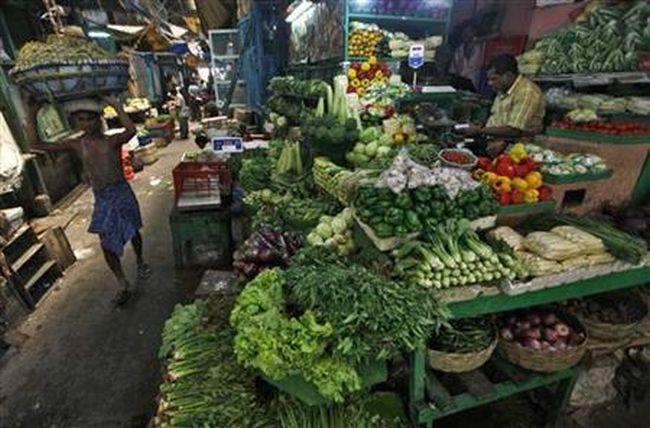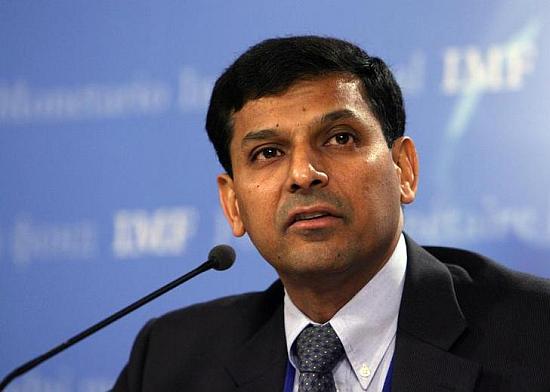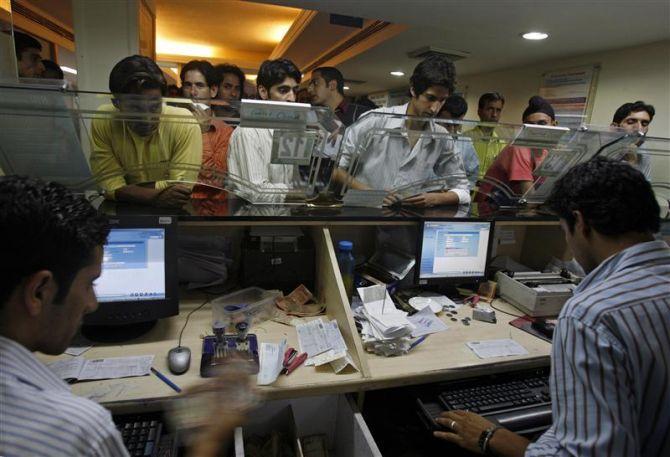 | « Back to article | Print this article |
Inflation unlikely to moderate significantly this fiscal
After declining for three consecutive months, prices spiked again in March as gains from seasonality abated.
The consumer price index rose to 8.31 per cent in March from 8.03 per cent in February, while the wholesale price index increased to 5.7 per cent from 4.7 per cent.
Over the past three months, vegetable prices have come down substantially, pulling down the headline print.
However, headline inflation has picked up again with vegetable prices rising in March. Food inflation in March rose to nine per cent from 8.03 per cent in February.
Click NEXT to read further. . .
Inflation unlikely to moderate significantly this fiscal
Primary food inflation also swelled to 9.9 per cent from 8.1 per cent. Economists believe inflation would stay elevated through most of FY15.
Indranil Pan of Kotak Economic Research says: "The next few months are likely to show a pick-up in headline print as seasonal factors continue to normalise, before dropping sharply towards the end of CY2014, largely helped by favourable base effect."
Prices would remain elevated as hopes of a bumper food grain production are dim, in the wake of hailstorms hitting Madhya Pradesh, Uttar Prdesh, Rajasthan, Haryana and Bihar.
Click NEXT to read further. . .
Inflation unlikely to moderate significantly this fiscal
The Reserve Bank of India has also highlighted there are upside risks to its targeted eight per cent levels by January 2015.
Also, core inflation (both CPI and wholesale price index or WPI) remains sticky. Core CPI, excluding food and fuel prices, remained flat month-on-month at 7.82 per cent in March.
Core WPI also rose to 3.50 per cent in March against 3.15 per cent in February.
The rise in the prices of metal products, chemicals and chemical products and alloys has contributed to an increase in core WPI. Economists expect core inflation to remain sticky at current levels.
Click NEXT to read further. . .
Inflation unlikely to moderate significantly this fiscal
However, inflation also faces upside risks from any policy-led upswing in the economy. State Bank of India's EcoWatch says downward trend in CPI is capped at 7.7 per cent going by current trends, and might continue to be a heartburn for RBI.
If the fears of an El Nino situation play out, risks to inflation will only increase. Economists believe RBI is unlikely to cut rates in FY15.
Indranil Sengupta of Bank of America Merrill Lynch believes the monsoons hold the key to RBI's inflation target of eight per cent by January 2015, as a five per cent swing in food prices impacts CPI inflation by 250 basis points.
Like many others, Sengupta expects RBI to hold on to rates in June 1.
Click NEXT to read further. . .





